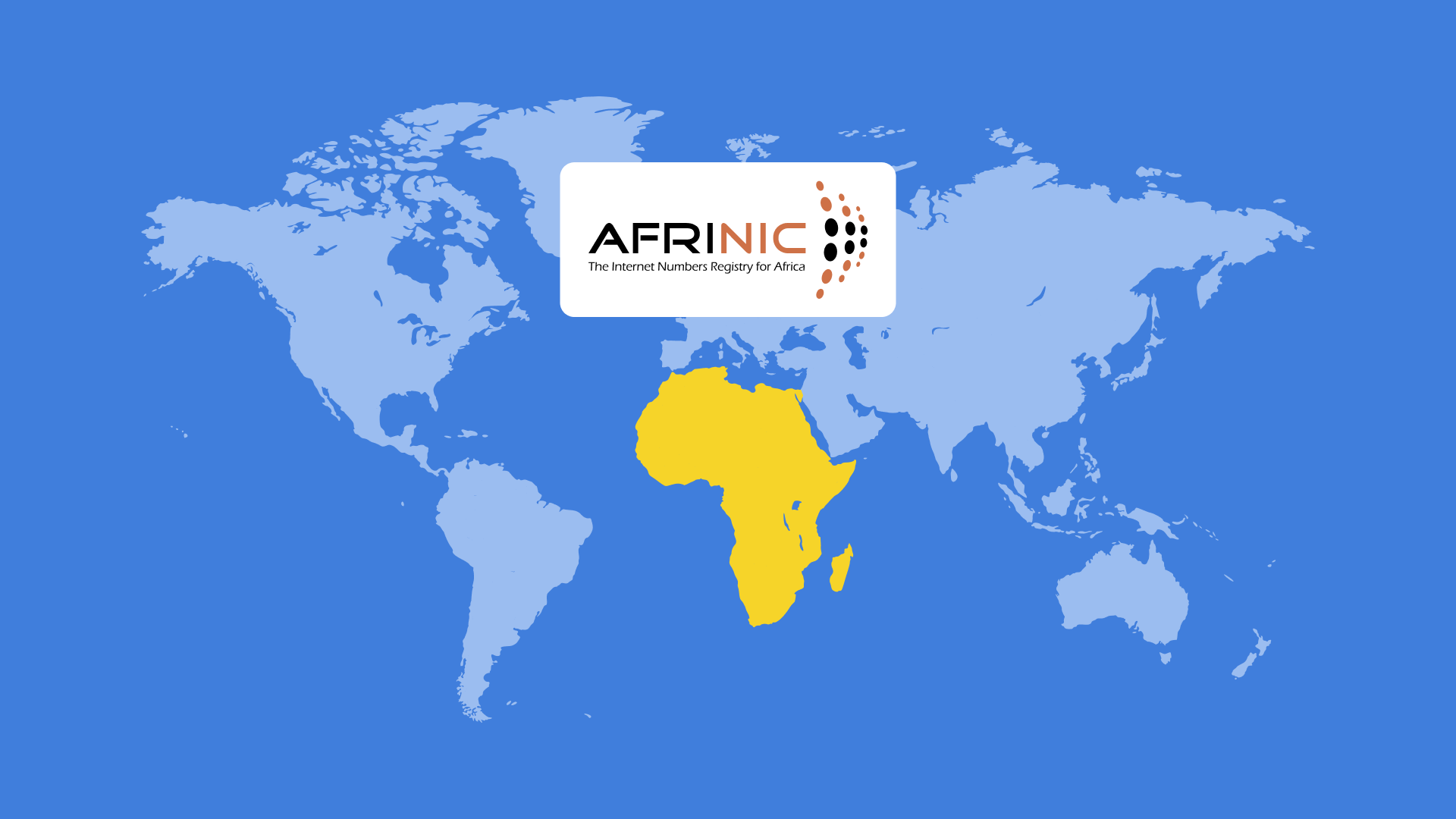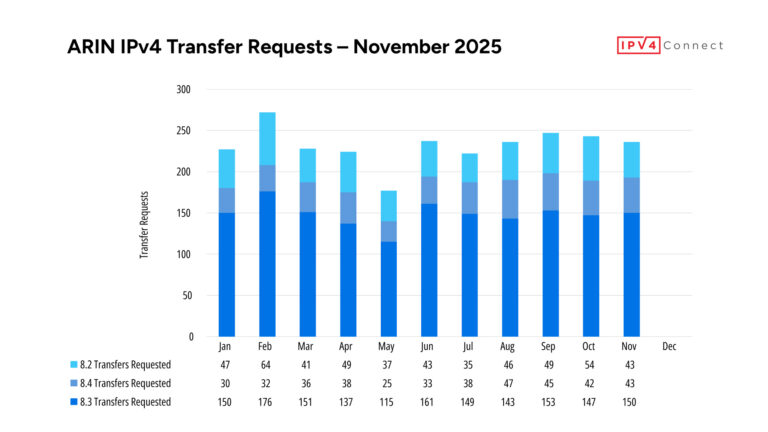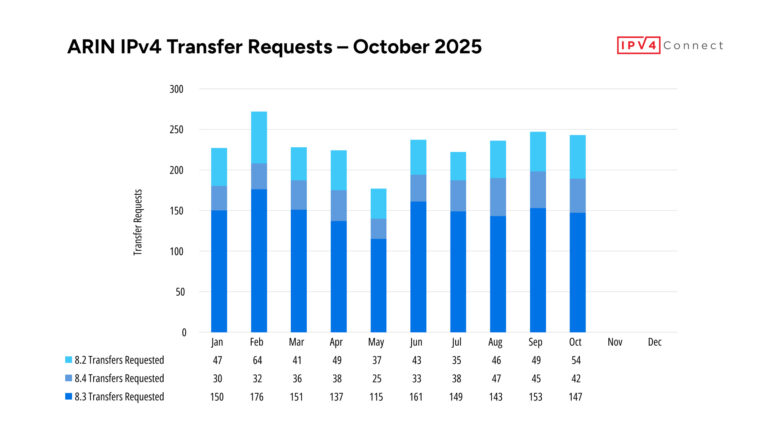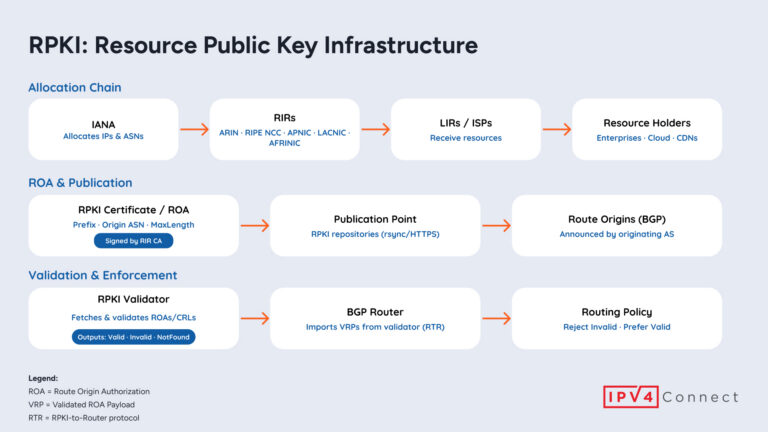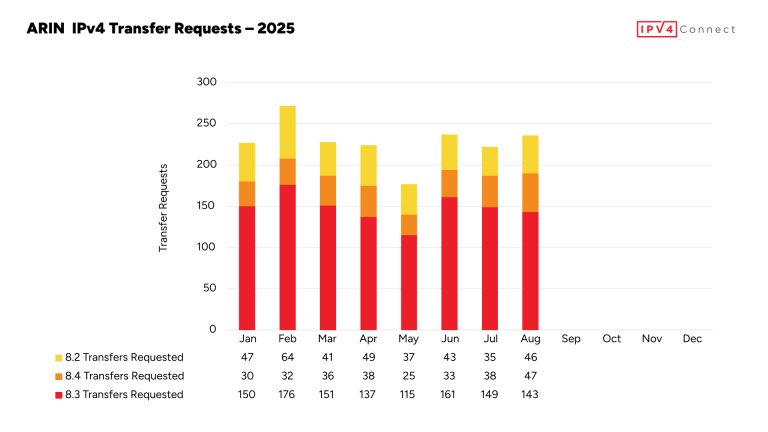Understanding the African Network Information Centre (AFRINIC)
AFRINIC allocates and registers Internet number resources across Africa and the Indian Ocean region. It is the continent’s only Regional Internet Registry (RIR). AFRINIC plays a key role in growing and securing Africa’s Internet ecosystem.
In Short
- Coverage: AFRINIC distributes IPv4, IPv6, and Autonomous System Numbers (ASNs) across Africa and the Indian Ocean region.
- Post-IPv4 Depletion: AFRINIC manages the remaining IPv4 space and actively promotes IPv6 adoption.
- Services Beyond Allocation: AFRINIC runs a public WHOIS database, offers routing security tools such as RPKI, and delivers technical training and policy-development support.
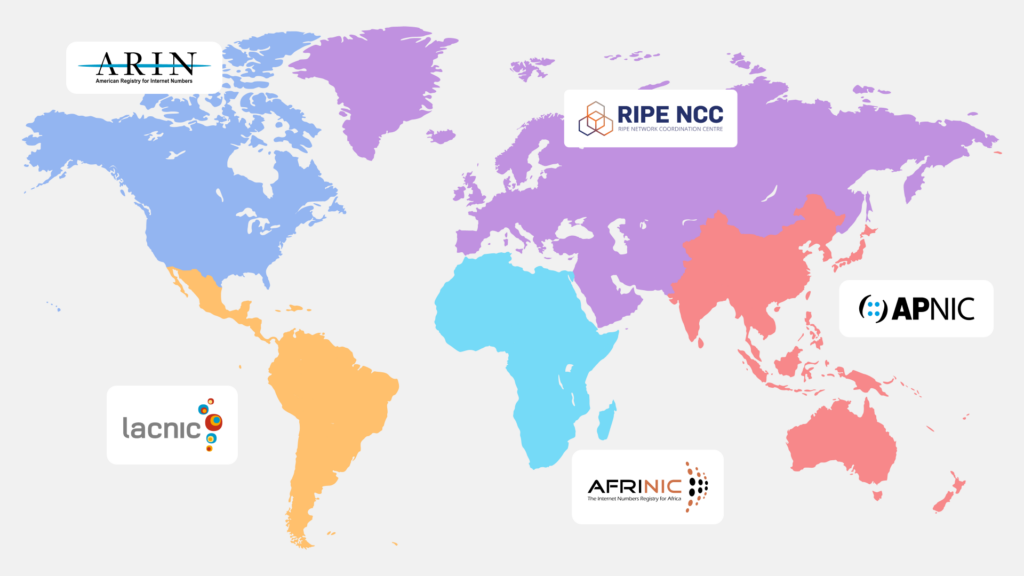
Why AFRINIC Matters
AFRINIC does more than hand out IP addresses. It coordinates community-driven policy, keeps resource data accurate, and delivers training and security tools. These actions help build a stable and secure Internet infrastructure for one of the fastest-growing regions in the world.
As one of five Regional Internet Registries (RIRs) is is responsible for allocating and managing Internet resources. They are broken up into different regions:
- AFRINIC – The African Network Information Center
- APNIC – The Asia-Pacific Network Information Center
- ARIN – North America
- LACNIC – The Latin America and Caribbean Network Information Center
- RIPE NCC – The Réseaux IP Européens Network Coordination Center
These registries ensure the efficient and fair distribution of IP addresses and Autonomous System Numbers (ASNs) to maintain global Internet connectivity.
Geographic Scope of AFRNIC
AFRINIC serves the entire African continent and parts of the Indian Ocean region, including Mauritius, Seychelles, Madagascar, and Comoros. It allocates and manages IPv4, IPv6, and ASNs for Internet Service Providers, enterprises, governments, and academic networks in its region. This focus makes AFRINIC unique among the world’s five RIRs.
By concentrating on Africa and nearby islands, it supports local network growth, encourages operator collaboration, and gives the region a single point of contact for Internet number resources.
Core Functions and Services
AFRINIC’s mandate extends well beyond simply issuing Internet number resources. Its core functions and services include:
- IP Address Allocation and ASN Assignment Managing the fair distribution of IPv4 and IPv6 address space, along with Autonomous System Numbers (ASNs), to Internet Service Providers, enterprises, and other eligible organizations within its service region.
- WHOIS Database Management Maintaining an up-to-date, publicly accessible registry of IP address and ASN allocations to ensure transparency and support network troubleshooting, coordination, and abuse prevention.
- Routing Security and RPKI Offering Resource Public Key Infrastructure (RPKI) to help operators cryptographically validate route origins, reducing the risk of hijacks, leaks, and misconfigurations.
- Policy Development Facilitation Hosting open, bottom-up policy discussions and meetings where community members shape the rules for how Internet number resources are managed in Africa.
- Training and Capacity Building Providing workshops, webinars, and on-site training to strengthen technical expertise among African network operators, governments, and academic institutions.
These services work together to build a more resilient, secure, and transparent Internet ecosystem for one of the fastest-growing regions in the world.
Why AFRINIC Matters
AFRINIC is more than Africa’s IP address registry. It allocates Internet number resources, keeps public data accurate, strengthens routing security, and builds technical skills across the continent. These actions create a stable and secure Internet ecosystem. As Africa’s digital economy accelerates, AFRINIC will play an even bigger role in driving IPv6 adoption, transparent policy, and community-led governance.
